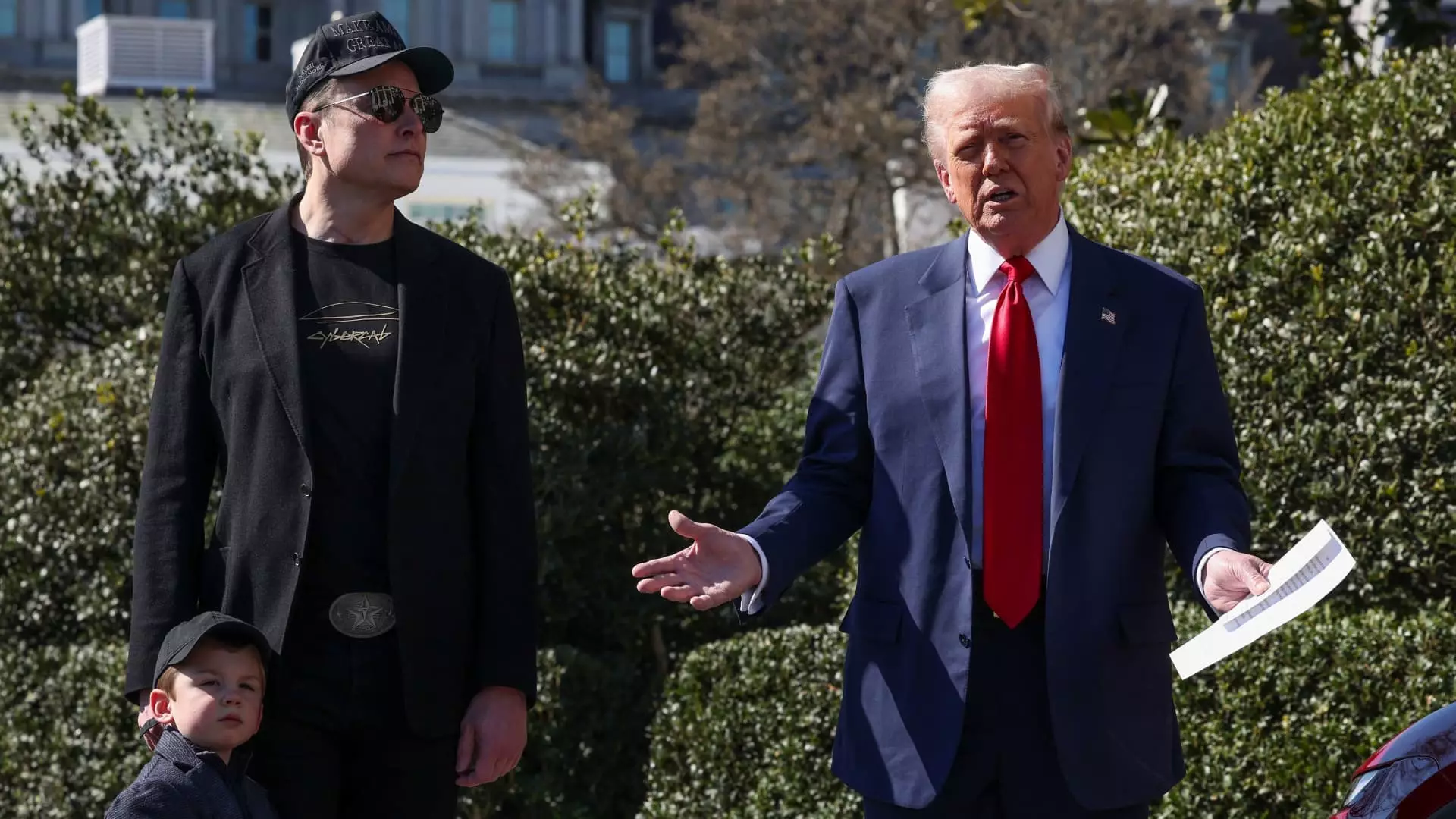The ongoing conflict between Donald Trump and Elon Musk epitomizes more than just personal animus; it reveals a deeper struggle over the future direction of American entrepreneurship and technological sovereignty. While Trump claims his goal is to foster an environment where American businesses flourish, his actions and rhetoric suggest a tug-of-war over who ultimately controls the levers of innovation and economic power. Musk, with his pioneering ventures in electric vehicles, space exploration, and artificial intelligence, represents a new wave of entrepreneurial independence—an alternative to the often bureaucratic and politicized corridors of Washington. Conversely, Trump’s attempts to scrutinize, restrict, or potentially curtail Musk’s substantial federal contracts hint at a desire to reassert governmental dominance over emerging industries perceived as too autonomous or politically problematic. This clash is emblematic of a broader ideological divide: the tension between free enterprise driven by innovation and a command-and-control approach rooted in political oversight.
Federal Dependency and the Myth of Support
The narrative around subsidies and government contracts is often painted in shades of black and white—either necessary catalysts for growth or unwarranted crutches. In reality, the situation is far more complex. Musk’s companies, notably Tesla and SpaceX, have become heavily entwined with federal support, which in turn raises questions about the sustainability of their success outside of government favoritism. While Musk emphasizes that he wants all American businesses to thrive, his reliance on federal incentives—such as environmental credits and contracts with defense agencies—demonstrates that the private sector’s rise is often facilitated by public funds. The fact that Tesla earned substantial revenue from regulatory credits, a mechanism fundamentally dependent on government regulation, underscores a paradox: innovation often depends on political climate and regulatory frameworks more than pure market forces. Attempts by the new administration to cut or scrutinize these subsidies could threaten the very ecosystem that has propelled Musk’s companies, stressing the importance of a balanced approach that encourages innovation without over-reliance on government handouts.
The Geopolitical and Economic Implications of the Musk-Trump Rift
Beyond domestic politics, the standoff invites a reflection on America’s broader strategic position. Musk’s ventures in aerospace through SpaceX and artificial intelligence via xAI are not just commercial endeavors—they are part of a national effort to maintain technological supremacy. The Pentagon’s contracts with Musk’s companies serve as a testament to their importance in establishing US dominance in space and defense. Any attempt to undermine or limit these engagements risks ceding ground to rival powers like China and Russia, who are aggressively advancing their own military and technological capabilities. Meanwhile, Trump’s efforts, including calls to review and potentially cut federal support, threaten to weaken these vital institutions at a time when geopolitical competition is intensifying. The underlying message is clear: a divided America, torn between regulation and deregulation, risks losing its lead in the most crucial sectors of future development.
A Question of Fiscal Responsibility vs. Strategic Investment
Skeptics may argue that government subsidies distort markets and foster dependency. However, in the context of cutting-edge industries like electric vehicles and aerospace, strategic investment—often intertwined with subsidies—is necessary to offset the monumental costs and risks inherent in these fields. Tesla’s reliance on environmental credits demonstrates how government policy can effectively accelerate environmental goals without direct subsidies—yet it also highlights a fragile dependency that can be disrupted by policy shifts. Musk’s concerns about losing federal incentives reflect fears that immediate political motivations could inadvertently sacrifice long-term gains. From a center-right liberal perspective, supporting innovation and strategic national interests warrants a nuanced approach: fostering a competitive federal environment that incentivizes private sector breakthroughs while ensuring responsible fiscal stewardship. Cutting off support without a clear transition plan jeopardizes the growth of sectors vital to America’s technological future—an unnecessary gamble in a high-stakes global race.
The Real Winners and Losers in this Power Play
At its core, the Medicare battle isn’t merely about policies or dollar figures—it is about who holds the reins of America’s technological future. Elon Musk, as a symbol of disruptive innovation, challenges the traditional political apparatus, and Trump’s populist rhetoric aims to swing the pendulum back in favor of a more controlled, resource-backed approach. For the American economy, the stakes are high: fostering an environment where private industry can lead in innovation is a blueprint for national competitiveness. For governments and taxpayers, it remains a balancing act—safeguarding strategic interests without smothering entrepreneurial spirit. The current tussle exposes how political machinations often threaten to undermine the very advancements they purport to champion, revealing the peril of conflating short-term political gains with long-term national progress.
This ongoing saga underscores a vital truth: in the race for technological supremacy, only pragmatic, strategic, and balanced policies will determine America’s future standing on the world stage. As the fight for control intensifies, the question remains—will America choose to empower its innovators or allow political interference to undermine its potential?

